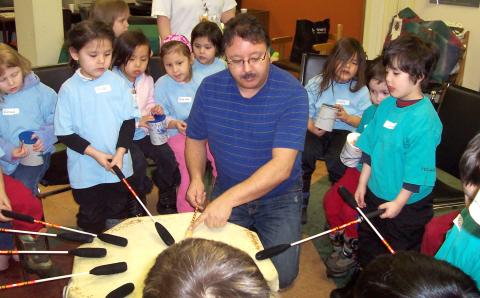Billy Graham once referred to the Christian Reformed Church as a “sleeping giant.” I understood that to mean we were a potent force for good even if he was implying that we were not as engaged as we ought to have been. If he were alive today, I doubt that’s how he would describe us now.
Several decades ago, Christian Reformed families held tenaciously to the discipleship and nurture of children as a threefold responsibility: at home, at church, and at Christian schools. Members were well-schooled in the Bible, the catechism, and the tenets of the Reformed faith. Although this was not a utopian system, families were generally Scripturally literate, doctrinally informed, and convicted to transform their square inches for Christ. I think this “three-legged stool” of home, church, and school is now cracked and wobbly because we are neglecting discipleship and instruction as a result of our preference for absorbing the world’s culture rather than transforming it, often at the expense of Scriptural knowledge and intentional Christian living.
What am I suggesting? If I needed to choose only one word, it would be vigilance.
At home, Christian parents have a difficult time parenting in the present culture. The busyness and stresses of everyday life wear us down. Often it is easier to give in to the mainstream than to object to what is against Scripture. Media saturates everyday living—often with violence, immorality, or vulgar and profane language, as well as inane and meaningless content. I suggest vigilance in our habits of consumption—particularly those habits that consume our time and convictions.
Church: Naturally, bringing unbelievers into the church fold and deepening the knowledge of Jesus Christ in all believers is our Christian calling. But do we apologize for our Reformed theology, or do we offer it as a remarkably relevant message for our challenged times? A steady diet of “happy only” messages is only half the gospel. Sin, hell, and the challenges of right living in a secular and often godless society should also be preached. Confronting the brokenness of our hearts and the world should make us more eager to celebrate covenant grace. God in the Old Testament and Jesus in the New Testament did not avoid offense and did not promise an easy path.
Christian schools equip students academically and in preparation for earthly and kingdom citizenship. “The fear of the Lord is the beginning of knowledge” (Prov. 1:7). When choosing schools for our children, should we not be vigilant about prioritizing moral and spiritual formation in the lives of our children as much as their academics? Isn’t the same true for those who choose to pursue higher education?
“This is love for God: to keep his commands. And his commands are not burdensome, for everyone born of God overcomes the world” (1 John 5:3-4).
About the Author
Marion Dykstra is a former Christian school teacher who led church Bible studies for 30 years. She is a member of Palos Heights Christian Reformed Church in Palos Heights, Ill.









